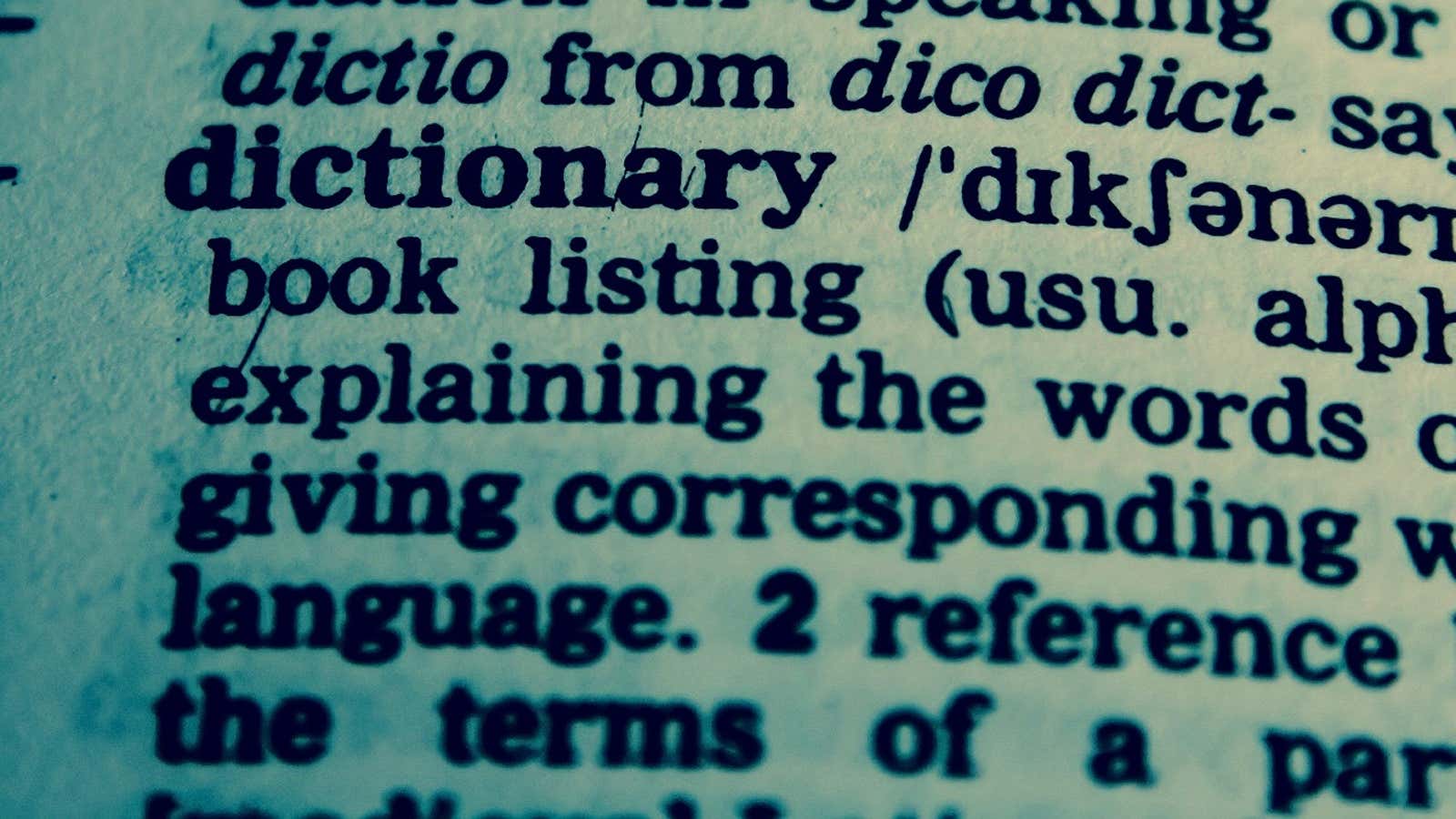There’s no escaping profanity, which is why dictionaries can’t be precious. Editors have to include slurs, curses, and other offensive words in linguistic compilations because they’re responsible for keeping a cultural record that contains the good, the bad, and the ugly.
Merriam Webster editor Kory Stamper recently authored a book, Word by Word: The Secret Life of Dictionaries, in which she shares her experience of navigating the treacherous path she and her colleagues tread. The lexicographer’s effort is journalistic, she explains, attempting objectivity about subjects even when they’re controversial or inflammatory.
Stamper shared the criteria for including a word in a Merriam Webster dictionary with NPR. The editors, she said, “seek widespread, sustained, and meaningful use.” That is, use that’s not regional, continues for 10-20 years, and subject to definition with some precision. Words that aren’t pretty can and often do meet the criteria for inclusion. Stamper doesn’t judge. She tries not to put boundaries on language. “It’s all worth using, and all of it is required to make the language flourish,” according to the wordsmith.
She admits some words are awkward or harmful, and just plain rude. But, she noted, ”just because it’s in the dictionary, doesn’t mean we’re promoting its use. For me to not include it would not get rid of the word’s use at all.”
Parents have written to complain about curses in the dictionary—specifically, fuck—but Stamper finds their dismay amusing and a little naive. Kids hear words before they look them up. “If they’re looking [fuck] up in the dictionary, it’s to see if it’s entered, not what it means,” the editor said.
The f-bomb is dropped with increasing frequency these days—even by American politicians, who once generally shirked vulgarity in public speech. So it would be absurd to pretend otherwise and not document its existence, preferences aside. The word fuck has been in use since 1680, according to Merriam Webster online, and originates in Dutch. It is in the top 1% of lookups, according to the site, which does not specify when the word was first added to the dictionary.
Anyway, profanity is not Stamper’s greatest challenge. What really keeps her up at night are those words that are terribly culturally fraught, the subject of great debate, and impossible for editors to ignore. Including a racial slur in a dictionary seems perhaps to grant the word a legitimacy that isn’t intended. Yet it’s not an option to pretend no one is using those sorts of words.
Take the n-bomb, for example. Conveying the fraught, complex history and many meanings of the word in a succinct dictionary entry is a daunting task for even the bravest lexicographer. Stamper explains: “This is a word that people have written books about; this is a word that you could do a book-length treatment of.”
Nonetheless, this is the job of dictionary editors and it’s not a conundrum unique to this time, although online editions do allow editors to express themselves more expansively than past print editions did. The Merriam Webster Editor’s Note associated with the entry explains that its offensiveness is not new even if it has grown more so with time—dictionaries have been noting it for more than 150 years.
